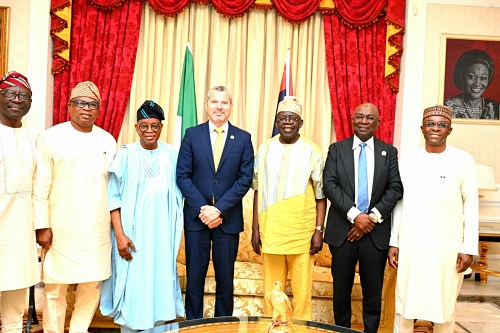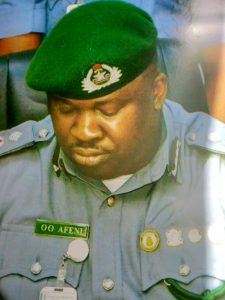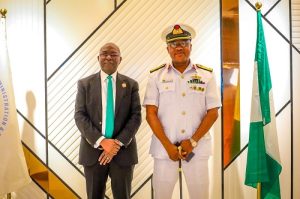Nigeria’s Optimism in IMO Category C Seat Bid 14 Years After…

FLAGS OF IMO MEMBER STATES
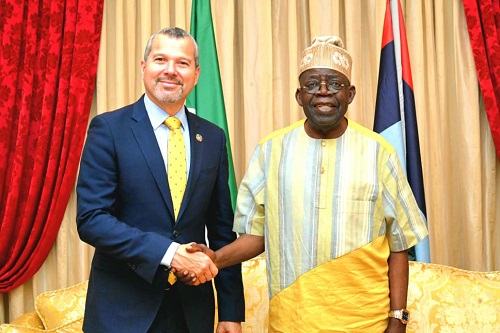
By Francis Ugwoke
For the Ministry of Marine and Blue Economy and the Nigerian Maritime Administration and Safety Agency (NIMASA), the year, 2025, has been very eventful. This is for obvious reasons. Top shots of the Ministry and NIMASA have been faced with the huge task of ensuring that Nigeria returns to the Category C seat of the International Maritime Organisation (IMO). This would be when the apex international regulatory organisaiton holds its 34th session election in London towards the end of the year. Nigeria has held the IMO Category C seat for two terms, between 2007 and 2011. Nigeria lost her seat in 2011. Since then, all the moves made to return to the seat have failed. In 2019, the country came close to returning to the seat but lost to Kenya over what was described by insiders as diplomatic political stabbing. It was with a narrow gap that Kenya beat Nigeria.
However, in a determined bid to return to the seat, Nigeria has been involved in addressing what is considered to have led to her defeat over the years.
War Against Piracy
In the past few years, NIMASA has made clear efforts to erase whatever can be used against Nigeria at any international forum. The agency has focused on improving on the nation’s maritime security, including safe guarding the Gulf of Guinea (GoG) against the notoriety of pirates and other sea robbers.
The issue of piracy has haunted Nigeria and the rest of the West African countries for a long time. The earlier notoriety in the GoG as far as piracy is concerned has impacted negatively on Nigeria and the rest of the West African sub-region as far as international trade is concerned. It has been the bane of international shipping for decades., coming close then to Somalia. In addressing this issue, Nigeria came out with full force, more than every other country. And the story has since changed. This was with the promulgation and implementation of the Suppression of Piracy and Maritime Offences (SPOMO) Act. It would be recalled that between 2019 and 2021 no fewer than $200 million was spent on the implementation of the Deep Blue Project.
This huge sum was spent on provision of critical infrastructure, including commissioning of 600 specially-trained troops, several quick response security vessels and aircraft, unmanned aerial vehicles as well as armoured vehicles. This effort helped in addressing the issue piracy and sea robbery within Nigeria’s territorial waters and GoG. Impressed about this, the former IMO Secretary General, His Excellency Kitack Lim had commended Nigeria for a good job. Lim had about three years ago commended both NIMASA and Nigerian Navy for being able to effectively combat piracy in Nigeria’s territorial waters and GoG with regional and international partners. During his visit to Nigeria in 2022, Lim said, “As we continue to look at ways the International Maritime Organization (IMO) can assist Nigeria, and other African member states, in increasing their maritime capabilities, I wish to use this opportunity to congratulate NIMASA for the successes recorded in reducing piracy and other maritime crimes in Nigeria’s territorial waters, and the Gulf of Guinea area, to record low levels.
“We understand that this has come about through NIMASA’s collaboration with the Nigerian Navy, as well as local and international partners and for this, we say congratulations”.
Speaking about Nigeria’s war against piracy in the past few years, the Director General NIMASA, Dr. Dayo Mobereola, said the country has done well in this regard, adding that this was the reason why Nigeria was removed from the List of Piracy Hot Spots.
Mobereola who spoke on the occasion of the one-day seminar organised by the League of Maritime Editors (LOME) in Lagos, in a paper titled, “Efforts at Tackling Piracy in Nigeria, GoG NIMASA”, said the agency equipped the maritime security establishments with the latest hardware to decrease sophistication of pirates.
He said, “Before now as we all know, piracy attacks at the GoG were high in 2020 as reported by the International Maritime Board Piracy Reporting Centre (PRC).
“In determining its quest to tackling some of these identified challenges at the GoG, NIMASA commenced equipping the maritime security establishments with the latest hardware amid at decreasing sophistication of pirates. To be ahead of the Curve, the country acquired and deployed assets under the Integrated National Security and Waterways Protection Infrastructure otherwise known as the Deep Blue Project”.
Diplomatic Drive
Not resting on its oars about what it has been able to achieve that will interest the international maritime community to give their support for its bid for the Category C election, Nigeria has been involved in campaigns to reach nearly all concerned in the election. The Minister of Marine and Blue Economy, Chief Adegboyega Oyetola, the Director General of NIMASA, Dr. Dr. Dayo Mobereola, and other top officials of the Ministry and agency have all been involved in diplomatic engagements in different countries. In June this year, they had both travelled to London to flag off the campaign. The occasion was the 110th Session of the Maritime Safety Committee (MSC 110) at the Delegates’ Lounge of the IMO Headquarters in London. In attendance were the Secretary-General of the IMO, Mr. Arsenio Dominguez, Permanent and Alternate Permanent Representatives of different member nations, diplomats as well as delegates from 120 IMO Member nations. Oyetola had used the opportunity to point out the serene security environment as far as Nigeria and GoG are concerned. He said that Nigeria has battled piracy to a zero level following heavy investments on protecting her maritime domain. Nigeria has also taken the campaign to Namibia, Spain, Oman, Bangladesh, Mexico, Italy, Greece, among others. In another visit to New York, United States for campaign, Oyetola pointed out Nigeria’s rich maritime potentials, including her 853 kilometres of coastline, 10,000 kilometres of inland waterways and large exclusive economic zone.
He equally pointed out the country’s commitment to the United Nations Sustainable Development Goal 14 in the areas of “conservation and sustainable use of oceans, seas and marine resources”. In what was seen as part of the campaign, Oyetola had also reaffirmed Nigeria’s strong commitment to strengthening maritime safety, environmental protection, and regional cooperation within the framework of the Abuja Memorandum of Understanding on Port State Control (Abuja MoU). He spoke on the occasion of the 3rd Bureau of Ministers Meeting of the Abuja MoU in Conakry, Republic of Guinea. He assured that Nigeria is determined to align its maritime governance with international standards while advancing the collective interests of West and Central Africa in global shipping. Oyetola used the opportunity to call on fellow African ministers to support Nigeria’s candidature in the forthcoming IMO Council elections under Category C. He assured that Nigeria’s inclusion on the IMO Council would provide a platform to advance the objectives of the Abuja MoU and amplify Africa’s collective voice in global maritime governance. Nigeria had equally received support from the Swiss government for the Category ‘C’ seat election.
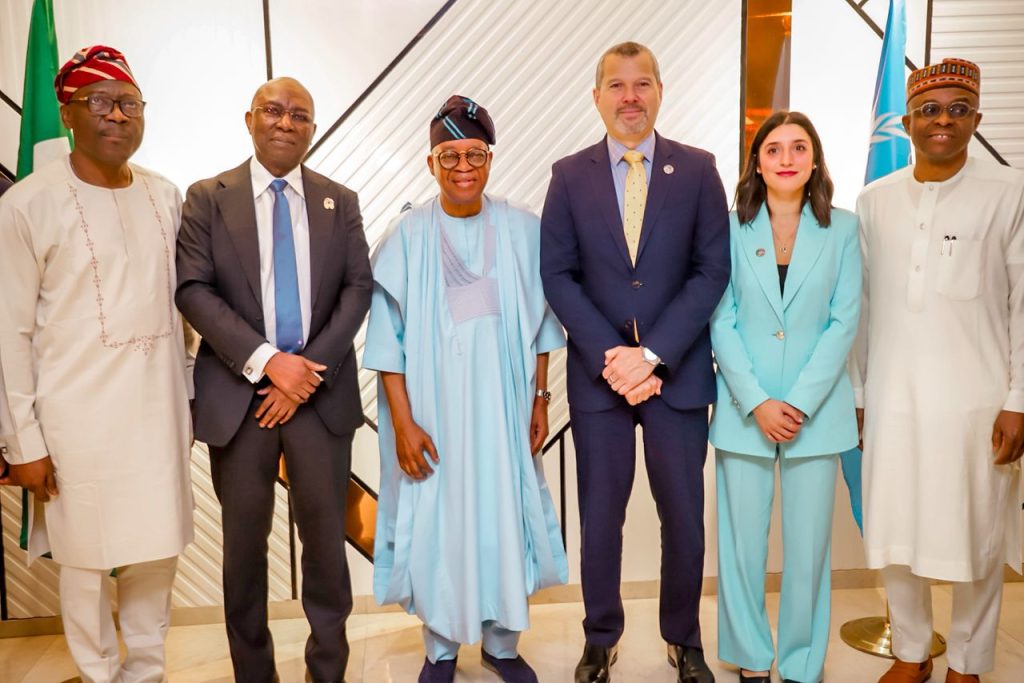
Optimism
With the campaign so far, there is a lot of optimism that Nigeria stands the chance of securing the Category C seat. This is considering words of support from different diplomatic levels. Among the countries that have come out to give their support to Nigeria include the United Republic of Tanzania.
The Tanzanian High Commissioner to Nigeria, Selestine Gervas Kakele, during a visit to Oyetola assured that his country will support Nigeria in its bid. Apart from Tanzania, there are other countries that indicated their readiness to support Nigeria in the election. The Switzerland’s Ambassador to Nigeria, H.E. Patrick Felix Egloff, had expressed the country’s support to Nigeria.
Nigeria recently hosted the Secretary General of IMO, Arsenio Dominguez, in what was seen as a way of asking the world to come and see its level of maritime development. The IMO SG was received by President Bola Ahmed Tinubu, in Lagos. During the visit, Tinubu stressed his administration’s commitment to developing Nigeria’s maritime sector as a viable alternative to fossil energy. The President said that the recent signing of the National Maritime Policy was a deliberate step to entrench global best practices and strengthen the competitiveness of the Nigerian maritime industry.
Dominguez had in turn commended Nigeria for its remarkable achievements in maritime safety and security, particularly in safeguarding the Gulf of Guinea. He assured that the United Nations agency remains ready to collaborate with Nigeria in sustaining the recent successes recorded in the sector. At a reception, Domínguez commended Nigeria for remarkable achievements in maritime security. He was no doubt thrilled by reports of zero piracy incidents for over three years and the ground-breaking Deep Blue Project. He described this as a model for regional cooperation in the Gulf of Guinea. According to him, Nigeria’s investment in maritime safety infrastructure and the collaboration of its security agencies, especially the Nigerian Navy, have yielded tangible results in combating piracy and maritime crimes.
These efforts, he said, demonstrate Nigeria’s leadership and commitment to ensuring safer seas, not just for its own waters but for the wider West and Central African region. In a letter he addressed to NIMASA DG after visiting Nigeria, he commended the efforts of NIMASA , particularly the impact of the Deep Blue Project in reducing piracy within Nigeria’s territorial waters and the wider GoG region.
He said, “I was particularly pleased to see first-hand the important work being undertaken by NIMASA to strengthen Nigeria’s maritime administration and to advance the effective implementation of IMO instruments.
“Your Agency’s efforts to enhance maritime safety, security, and environmental protection clearly demonstrate Nigeria’s commitment to upholding international standards and supporting the objectives of the International Maritime Organization. The Deep Blue Project continues to stand out as a major achievement, significantly improving maritime domain awareness and contributing to a safer and more secure Gulf of Guinea. I encourage NIMASA to maintain its focus on the long-term sustainability of the project so it may serve as a model for broader regional security frameworks.” To observers, the testimony given by the IMO secretary general after his visit to the country is a good development and could add up in determining Nigeria’s fate during the Category C election.
